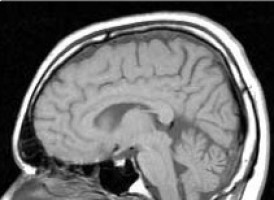
Cedars-Sinai investigators have identified a stem cell-regulating gene that affects tumour growth in patients with brain cancer and can strongly influence survival rates of patients.
The findings, published in the online edition of Scientific Reports, could move physicians closer to their goal of better predicting the prognosis of patients with brain tumours and developing more personalised treatments for them.
To enhance understanding of how glioma cancer stem cells (GCSCs) reproduce and how they affect patient survival, investigators spent three years analysing the genetic makeup of more than 4,000 brain tumours.
During their investigation, they identified the gene, called ZEB1, that regulates tumour growth. The investigators' analysis suggests that brain cancer patients who don't have the gene tend to have lower survival rates.
"Patients without the gene in their tumours have more aggressive cancers that act like stem cells by developing into an uncontrollable number of cell types," said John Yu, MD, vice chair of neurosurgical oncology in the Department of Neurosurgery and senior author of the study. "This new information could help us to measure the mutation in these patients so that we are able to provide a more accurate prognosis and treatment plan."
Brain cancer occurs when cancer cells - also called malignant cells - arise in the brain tissue.
This year, more than 23,000 people will develop primary cancerous tumours of the brain.
Approximately 16,000 of those patients will die, according to the National Cancer Institute and the American Cancer Society.
Yu and fellow researchers noted that while some brain cancer patients are born without the gene, others have it but over time, the gene has become less powerful - which could have had a role in causing the disease.
"We found an 8 ½-month shorter survival rate in lower grade glioma patients with the ZEB1 gene mutation compared to those individuals who have the gene," said Yu, who also serves as director of Surgical Neuro-Oncology at Cedars-Sinai. "We are learning that some chemotherapies are not effective in the population of individuals who have the gene deletion so we have to treat them with different medications."
Source: Cedar-Sinai Medical Center
The World Cancer Declaration recognises that to make major reductions in premature deaths, innovative education and training opportunities for healthcare workers in all disciplines of cancer control need to improve significantly.
ecancer plays a critical part in improving access to education for medical professionals.
Every day we help doctors, nurses, patients and their advocates to further their knowledge and improve the quality of care. Please make a donation to support our ongoing work.
Thank you for your support.